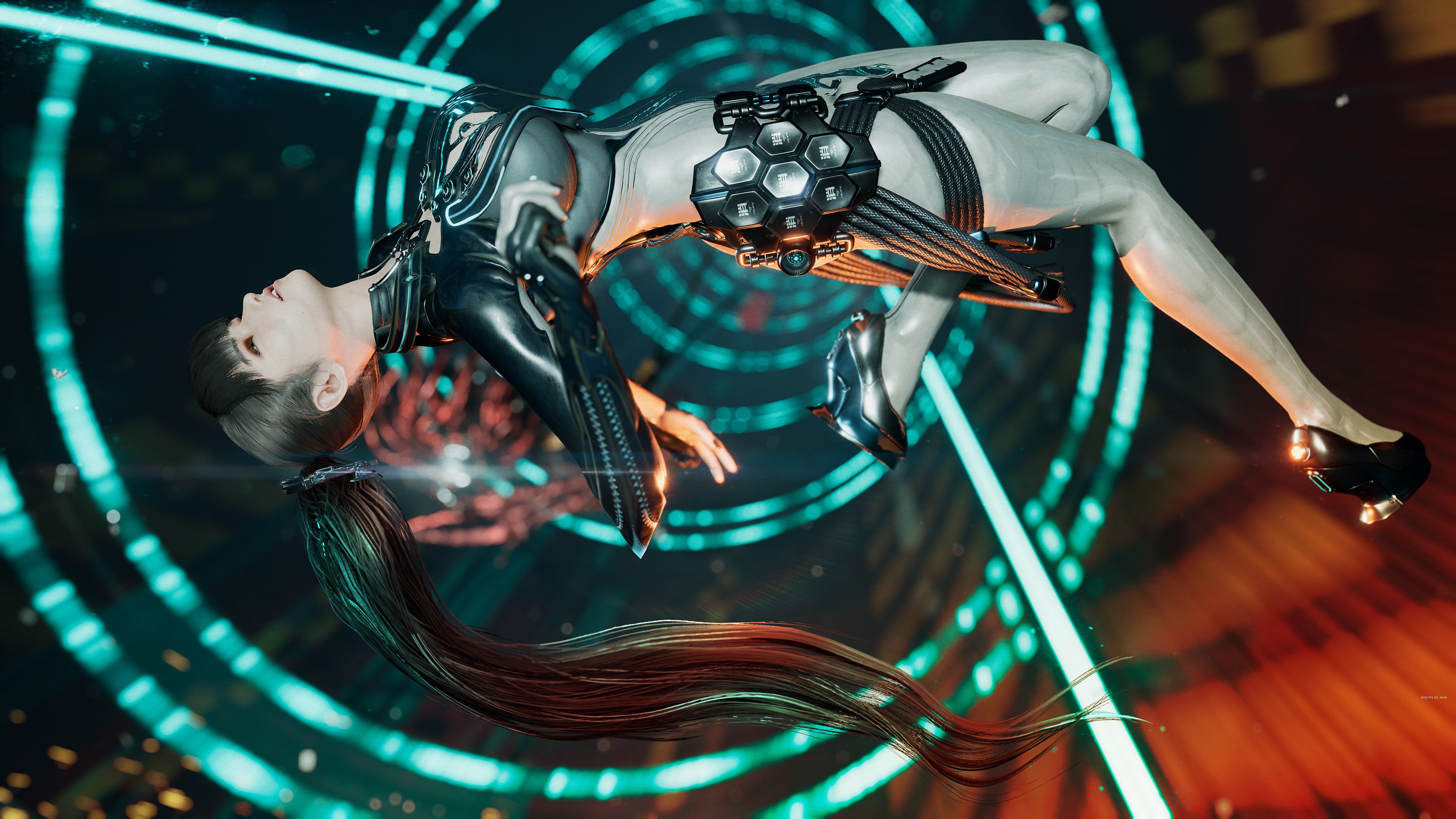Stellar Blade is a prime example of how PC ports should be done – ultrawide compatibility and stable performance are a must
There should be no excuses...

I've been hoping for a long while that bad performing PC ports would become a thing of the past, but over the last few years, that hasn't panned out. The biggest examples of recent games are Rise of the Ronin (which I've covered previously), Star Wars Jedi: Survivor, and Monster Hunter Wilds, which all suffer from constant stuttering and rely on upscaling methods like DLSS for performance stability.
It's not just performance either; the lack of ultrawide compatibility in some games today is alarming, as there's no secret that ultrawide displays have become more mainstream than ever before.
Fortunately, Shift Up's Stellar Blade is one of the recent outliers, with fantastic performance and optimization, including ultrawide compatibility up to a 32:9 aspect ratio.
This also applies to cutscenes, as some titles that do have ultrawide introduce black bars during cutscenes – and yes, I know this is to prevent some strange glitches from happening where you're not supposed to see them. However, I want more titles to include the option to disable black bars (as some games do).
There are numerous popular games I've mentioned before that don't have ultrawide support whatsoever; I won't go into a full deep dive again, but Stellar Blade is another game coming from Sony's PlayStation 5 console that both runs well and adheres to multiple user configurations well – so this is another plea for other game developers to do better.
Stellar Blade is a dream for most desktop and handheld gaming PCs

To give you an idea of how good performance is in Stellar Blade, I've been able to achieve over 60fps at 1080p on medium graphics settings on my Asus ROG Ally, sometimes even reaching low 80fps. Switching on AMD Frame Generation sees the frame rate shoot up to 112fps – and notably, it doesn't feel choppy or laggy, since frame generation tech works best when the base frame rate is up to a good standard (and 60fps is perfect for that).
With the Steam Deck, 60fps on lower settings is easily achieved, too, and this is perhaps one of the very few games that is Deck Verified, and lives up to it. It only gets better if you're using a device like the MSI Claw 8 AI+, which boasts more horsepower than its competitors.
Sign up for breaking news, reviews, opinion, top tech deals, and more.
On the side of desktop PCs, Stellar Blade easily runs at over 100fps consistently without the use of Nvidia's Frame Generation, on the highest graphics settings. It's possible thanks to an RTX 4080 Super and an AMD Ryzen 7 5700X3D, and it's a huge indication of just how powerful PC hardware can be when games are made to run optimally.
Don't get me wrong, I'm not saying there aren't other games that don't impress with good optimization, but rather, there are too many bad apples among triple-A titles. Those bad PC ports leave a sour taste behind for those who spend on high-end hardware, because as good as those systems may be, there's only so much they can do to brute force things.
It's also worth noting that handheld gaming PCs are becoming mainstream (or arguably already have), and while a portion of them utilize very powerful hardware, it's not the case with others like the Steam Deck. So, ports like Stellar Blade on PC are great for fans to see, and I'm hoping game developers and publishers can look at this as a template going forward.
You might also like
- Gamers, I told you voting with your wallet matters – and Borderlands 4's price tag is a prime example
- Forget the Switch 2 – this dual-screen handheld gaming PC brings back the glory days of the Nintendo DS, but with all your Steam games
- I'm almost certain that Capcom is holding a major character surprise for Resident Evil Requiem – and if it's who I think it is, I'll be stoked for launch

Isaiah is a Staff Writer for the Computing channel at TechRadar. He's spent over two years writing about all things tech, specifically games on PC, consoles, and handhelds. He started off at GameRant in 2022 after graduating from Birmingham City University in the same year, before writing at PC Guide which included work on deals articles, reviews, and news on PC products such as GPUs, CPUs, monitors, and more. He spends most of his time finding out about the exciting new features of upcoming GPUs, and is passionate about new game releases on PC, hoping that the ports aren't a complete mess.
You must confirm your public display name before commenting
Please logout and then login again, you will then be prompted to enter your display name.